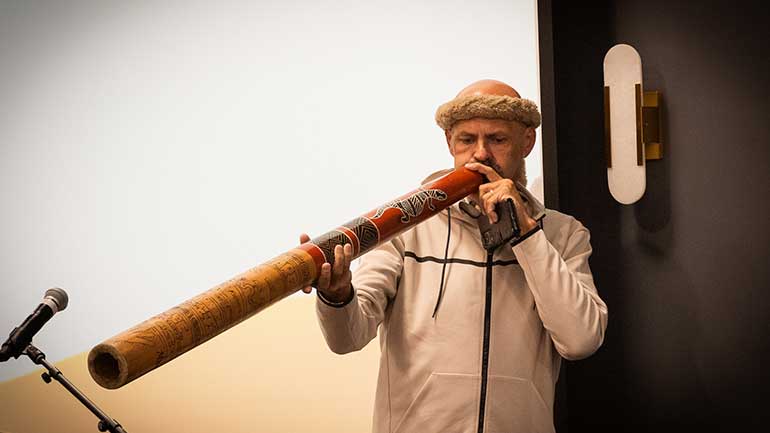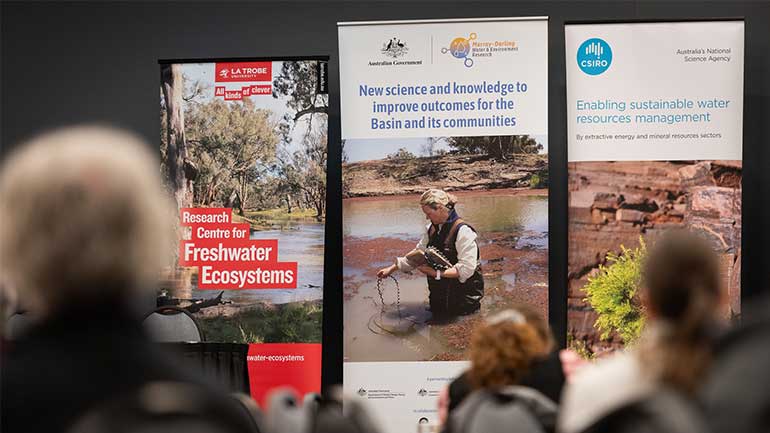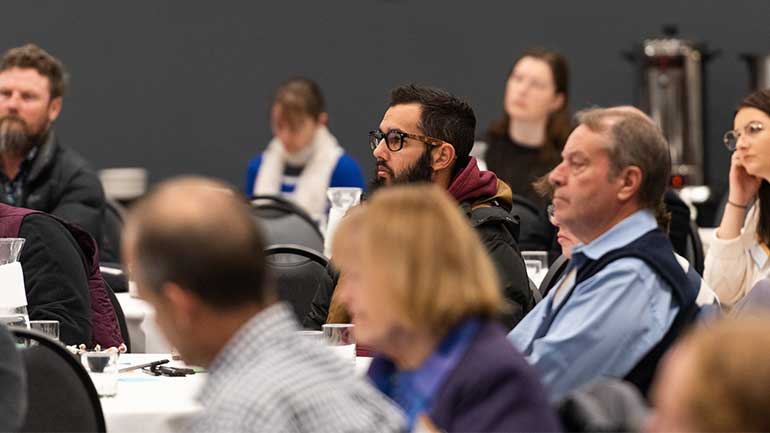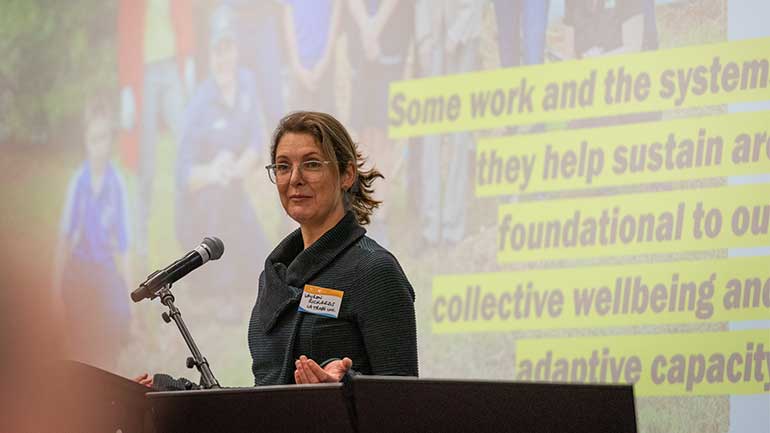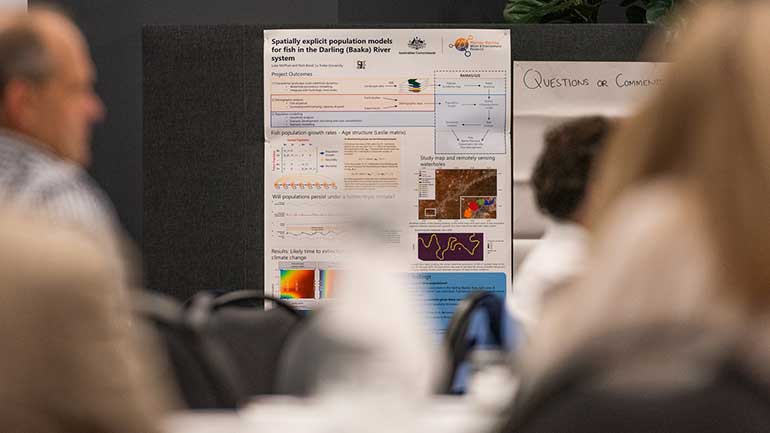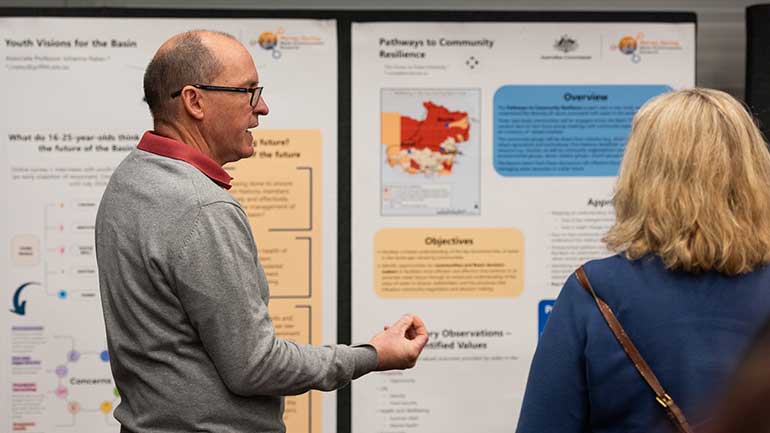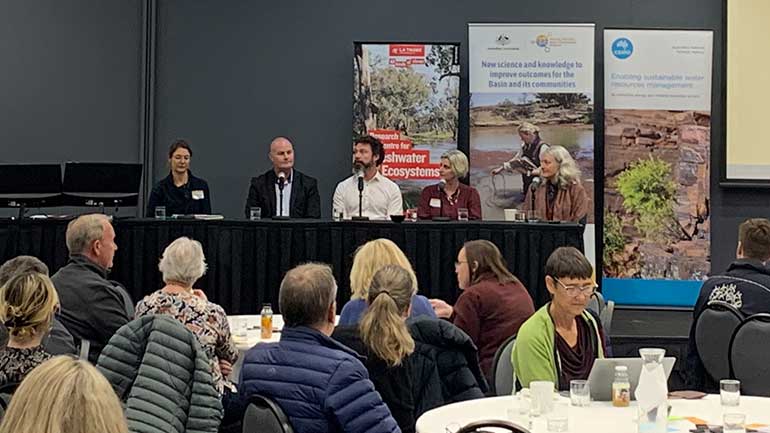Over 100 community members, environmentalists, policy-makers, academics and water experts gathered in Albury, NSW, on 21 June at the Murray–Darling Water and Environment Research Program (MD-WERP) Science Symposium.
The event was an opportunity for researchers to share their work, and attendees to exchange knowledge, and collaborate on key issues affecting the Basin.
Chair of MD-WERP, Professor Rob Vertessy, gave the opening address explaining how the program started as a response to the fish deaths in 2019, and has continued to respond to emerging issues in the Basin.
“MD-WERP aims to strengthen the scientific knowledge of the Basin under the 4 themes of climate adaptation, hydrology, environmental outcomes, and the social, economic and cultural outcomes,” he said.
“I’m really pleased to see the many insights that have emerged after 4 years of research under this program. As we enter the final year, I am confident that the program outputs will be of enormous benefit to the forthcoming Basin Plan Evaluation and Basin Plan Review.”
The keynote speaker was Professor Lauren Rickards, Director of the Climate Change Adaptation Lab at La Trobe University and a specialist on climate change adaptability and social change.
As a lead author with the Australasia chapter of the Intergovernmental Panel on Climate Change's Sixth Assessment Report on Impacts, Adaptation and Vulnerability, Professor Rickards shared how her research in climate adaptation has highlighted significant cascading risks.
“We need to understand that there is a whole host of climate-related hazards and areas of impact for rural communities beside how much water is in the dam. Our understanding of climate change risks needs to be based on a comprehensive understanding of the broader context… understanding what came before and understanding the different kinds of possible futures” she said.
Professor Rickards also shared some of the opportunities communities have to address climate risks.
“In climate adaption, we’re working at the interface of research and policy… and social relationships are the most important thing. Fostering shared learning and social relationships is the best thing we can do for climate adaption.”
In his address, Chief Executive of the MDBA, Andrew McConville said “it is important we share the results of the research to date and how that research might be adopted and used across the Basin to a much wider audience.”
“I've never known a scientist that doesn't like talking about their work. This symposium is a wonderful opportunity to demonstrate the work that you've done, how you've been out, you've listened to stakeholders and showcase how the work that you’re doing is intended to be used in what I call the real world of the Basin.”
The MDBA website has more on the Science Symposium, including the individual research posters shared at the event.
